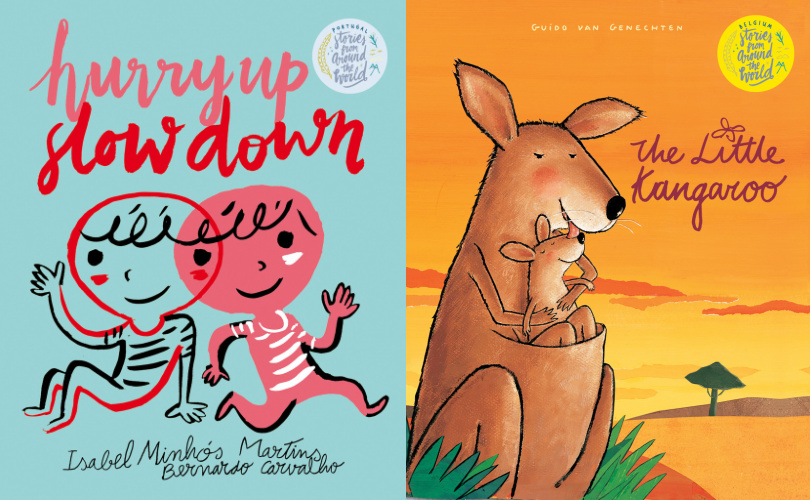Epigram Books is a Singaporean independent publisher best known for the middle-grade series The Diary of Amos Lee, translations of Singapore’s Cultural Medallion winners, and new editions of out-of-print classic Singaporean novels. Epigram Books also publishes children’s picture books, plays, graphic novels and cookbooks.
Nearly fifteen percent of Epigram Books’ list is works in translation and its list of picture books, the Stories from Around The World series, features contemporary titles handpicked by Publisher and CEO Edmund Wee. Most recently, Epigram Books translated The Little Kangaroo by Guido van Genechten (from Dutch) and Hurry Up, Slow Down by Isabel Minhós Martins and illustrated by Bernardo Carvalho (from Portuguese) to English.
I spoke to Wee in Epigram Books’ Toa Payoh office.
How did Epigram Books’ Stories from Around the World series start?
Epigram Books wanted to introduce English-language books that were not books from the U.S. or the U.K. to Singaporean readers.
Once I started looking at books published in other languages, I discovered so many good ones! Obviously, I couldn’t bring them all to this market, so I selected a few, found translators in Singapore, and released our first titles.
How do you discover books from languages you do not read? How do you decide which books to publish?
I often find titles at international book fairs, such as Bologna and Beijing. If I find a book interesting, I ask the publisher or agent there to explain the story to me. Sometimes they have a basic English translation. We shy away from books that have illustrations that aren’t “universal” for us in Asia, such as children with blonde hair or landscapes that are alien to this part of the world.
What qualities do you look for in translations?
We translate either in-house or using local translators. Singapore is very cosmopolitan and there are people here of many nationalities. In some cases, countries will give us grants to translate their works; thus far, we have received such grants from Korea and Italy. We sometimes receive translations from the publisher, and our in-house make adjustments to the language so that it is closer to the English as it is spoken in Singapore.
Are you making a conscious attempt to expand the horizons of the literature seen in translation, or are you just guided by what you’re interested in reading?
I tend to be drawn to contemporary and fantastical titles because it’s not easy to find books of this kind produced locally. Illustrators who I commission in Singapore tend to be more realistic and literal minded. I think to myself when I see books I want to buy, “It’s unusual. It’s not ‘Singapore’ or the kind that Singaporean children might read, but let’s try it.”
What have been some of the biggest challenges you’ve faced since you started publishing translated literature?
Singapore is a very small market, and we receive little support from bookstores. Picture books need to be seen face-up, and they tend to take up a lot of space. Bookstores shelve these books with the spine facing outwards—it’s hard to sell a book displayed that way. There is also not a bookbuying culture for children (unless they are testing or assessment books).
That said, I don’t regret publishing these books. Epigram Books started because we wanted to promote local literature and literature to locals. We’re still in the red. We’re not making money, but what the hell, you know? My house is paid off. My car is paid off. I don’t really need a lot of money. As long as I don’t go bankrupt, it’s fine! I want to do what I think should be done—publish quality children’s books from around the world.
*****
Pooja Makhijani writes children’s books, essays, and articles, and develops educational media and curricula.

